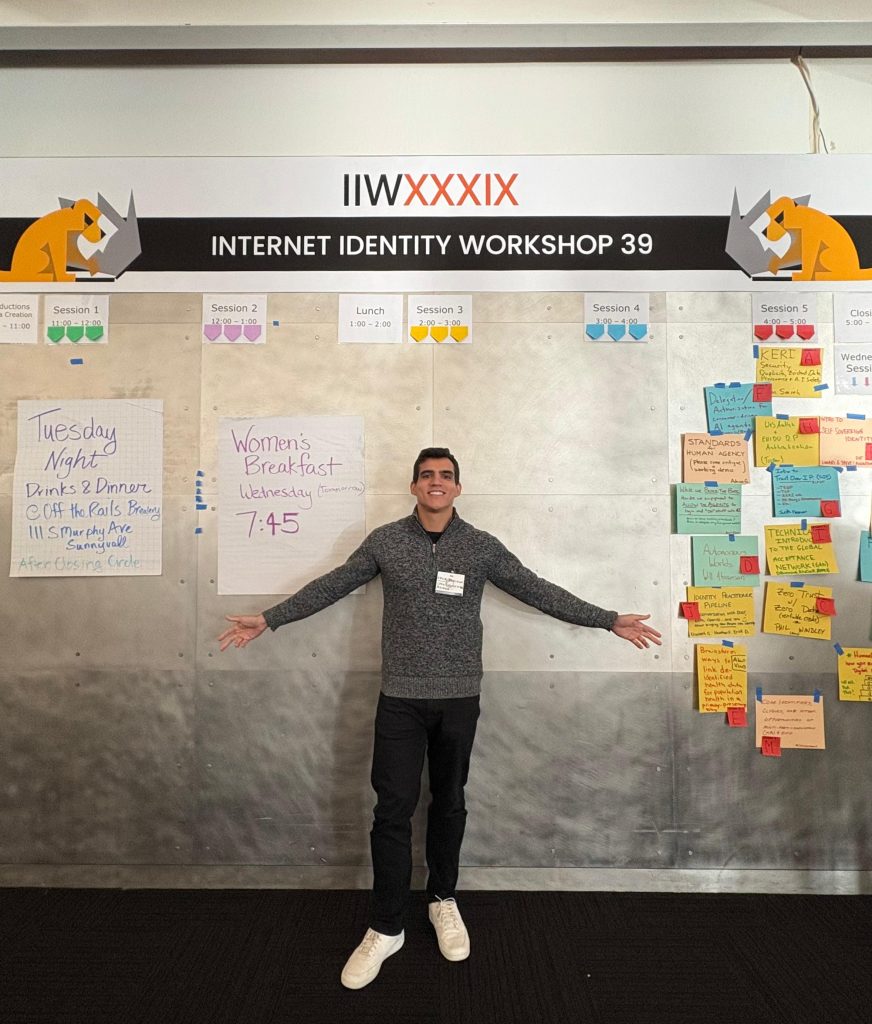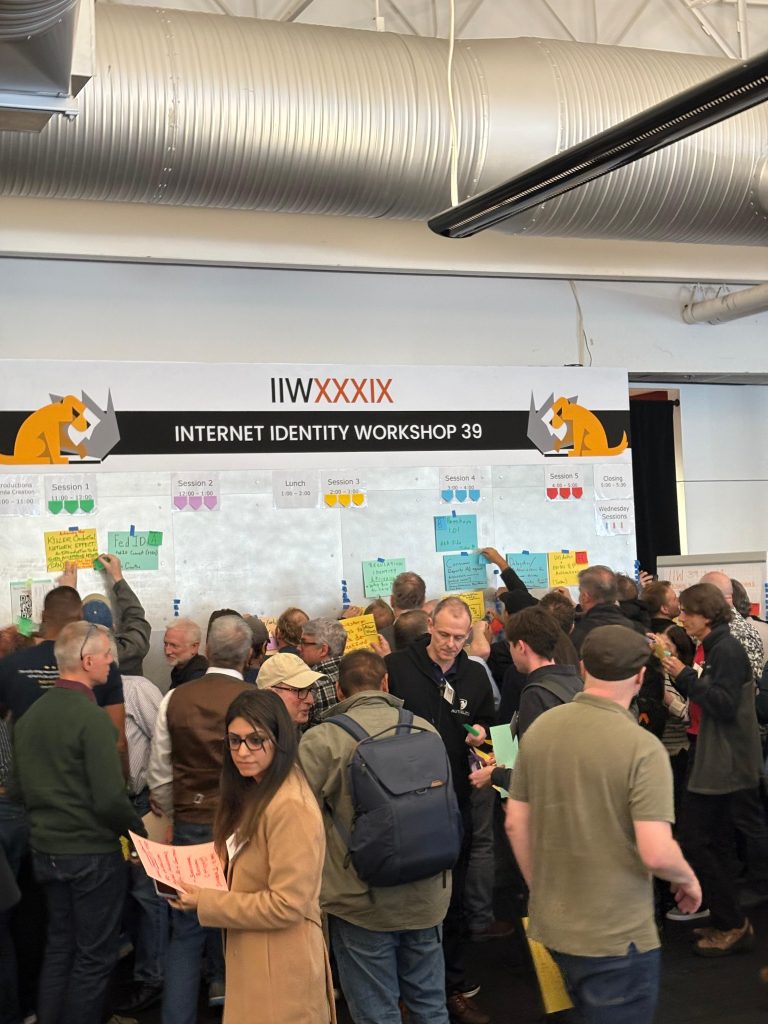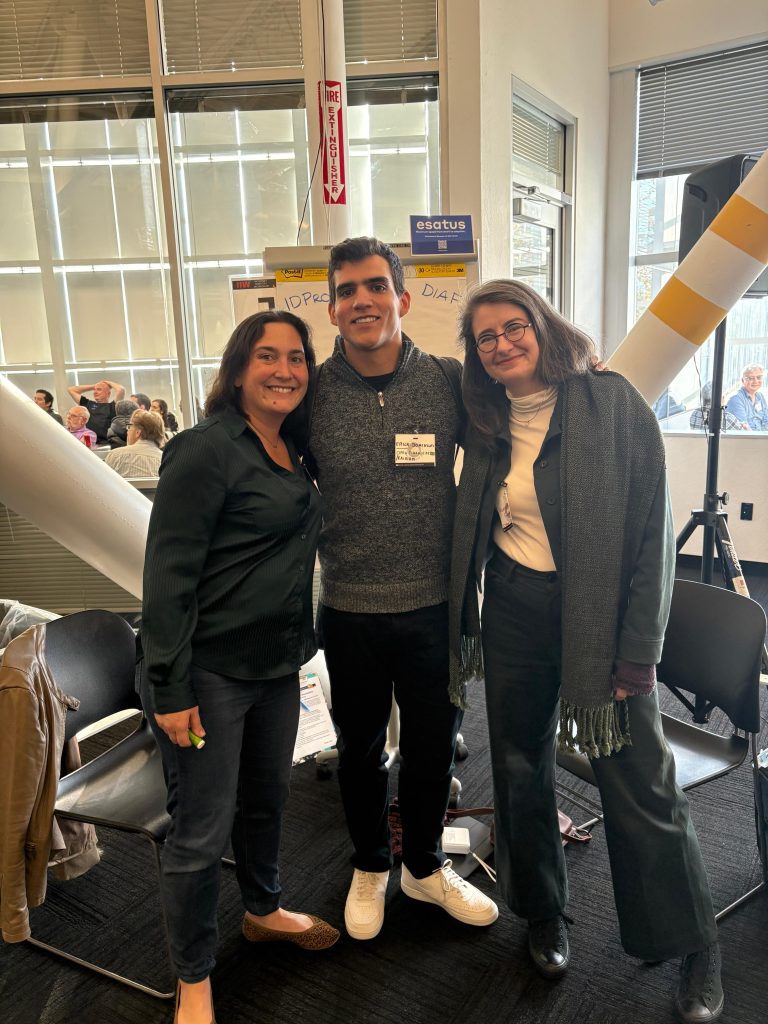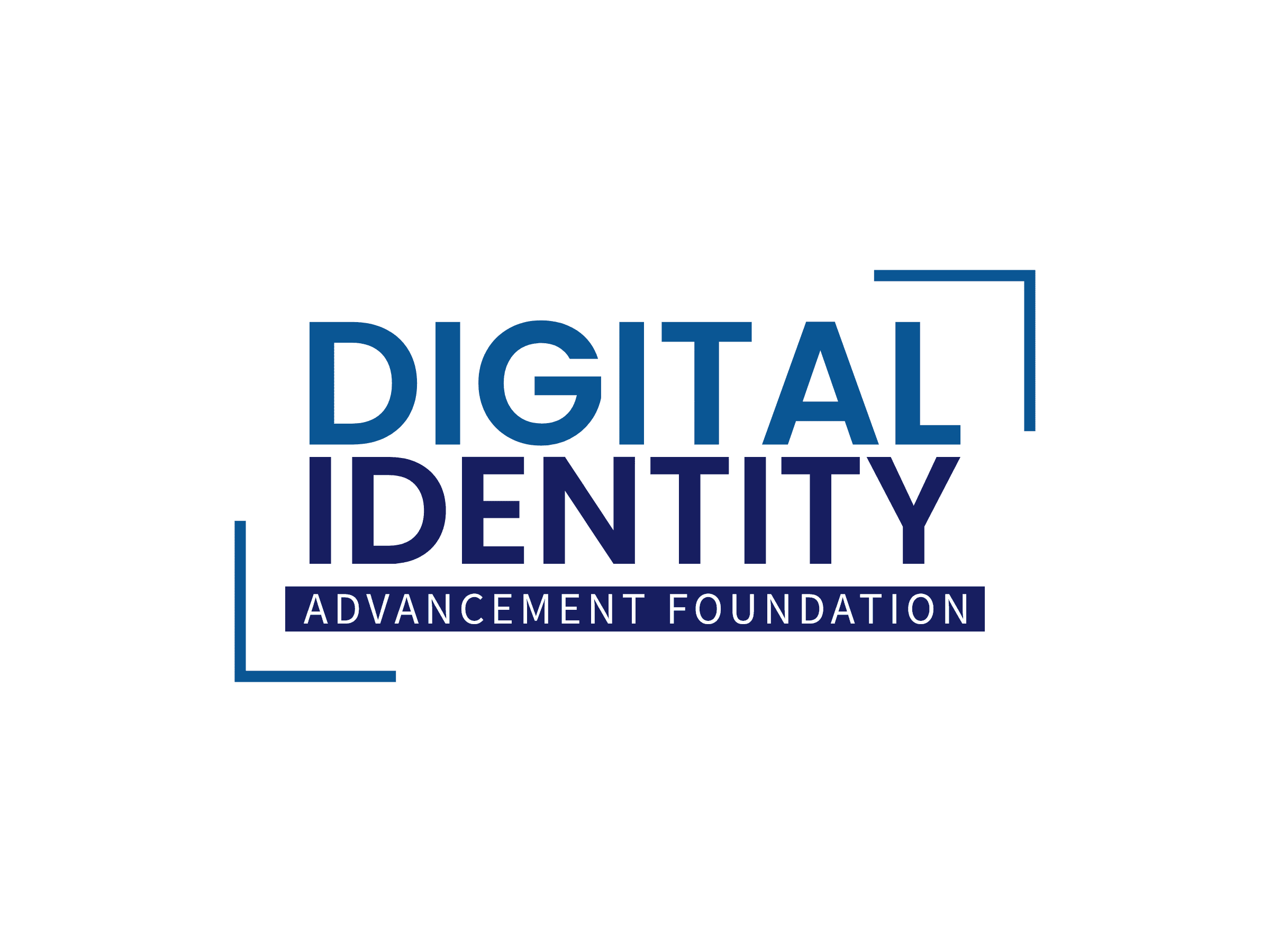
Erick Domingues is a 2024 Vittorio Bertocci Awardee.
DIAF supported his journey to the Internet Identity Workshop (IIW) 39 in October 2024. We invite you to read more about his research and perspective below.
Before heading to the Internet Identity Workshop (IIW), I wasn’t quite sure what to expect. Even the concept of an unconference didn’t make much sense to me: How can they organize an event without a well-defined agenda? What if people simply don’t call sessions?Despite these questions, I was excited. My primary goal was to meet the people behind OAuth and FAPI – standards that I’ve been deeply involved with over the past four years through Open Finance implementations in Brazil and the United Arab Emirates.
On my first day, even before arriving at Microsoft for the OpenID Foundation’s pre-conference workshop, I got a glimpse of the unexpected. In the hotel lobby, I met a participant named Jeff Orgel, who offered me a ride. He mentioned he would talk about something called “HumanOS.” Naively, I assumed this was an actual operating system and started asking what it was based on and what use cases it might unlock. Of course, that wasn’t the point, his panel was on how humans interact in the digital world, and not any technical implementation. This feeling of “breaking expectations” stayed with me throughout the entire conference.

On the conference grounds, in addition to learning more about OAuth as I had planned, I was introduced to many other standards directly from the people who wrote them—DIDs, WebAuthN, Federation, and Verifiable Credentials (a very hot topic with the European ID movement). For me, that alone was a huge value-add of the IIW: realizing that digital identity goes far beyond just the OIDF standards I knew. It opened my eyes to other directions and topics that my company could potentially invest in, and it also sparked ideas for what we could bring back to Brazil. For instance, I see a lot of potential for using Verifiable Credentials in my home country, especially given the progress being made in Europe with a Unified European ID.

In addition to these technical topics, I was also surprised to encounter many non-technical discussions. One that caught my attention was about “How to Monetize Standards,” which is a valid reflection because the people who create the standards often aren’t the ones making money—it’s those who implement them. Another session, which I was happy to call alongside my colleague from DIAF, Elizabeth Garber, and IDPro‘s Heather Flanagan focused on how to bring new people into the digital identity space. We talked about the fact that, as experts age out of the industry, we need to figure out how to attract and train younger professionals. This challenge is compounded by the growing body of work and the steep learning curve necessary to even begin grasping these standards.

The people aspect was also a highlight. I finally got to meet faces I had only read about or heard mentioned on RFCs and mailing lists. I was happy to chat with various contributors to the OIDF standards, putting faces to the names of these incredibly smart people. For emerging topics, such as Verifiable Credentials, I had the chance to learn directly from leading experts. The vast amount of insight and the breadth of my questions during the conference would have taken me weeks to research on my own.
After returning to Brazil, I can say the experience far exceeded my expectations. Not only did I learn more than I anticipated, but I also feel more motivated to continue working on standards. As soon as I got back, I initiated “Standards 101” sessions at my company, held biweekly, where other engineers voluntarely explain different standards to the broader technical team. Additionally I also reached out to members of the Brazilian National ID Body, with the hopes of influencing them to use OIDF Standards here in Brazil, which have a lot of synergy with the Standards I have helped setting for Open Finance here, which could help with interoperability. For 2025, I plan to more actively contribute to some of the standards I’ve been using for Open Finance, in hopes of bringing my implementer experience to broaden their scope and fix issues that I have encountered on my usage of them.
Without a doubt, I can say that IIW is an amazing (un)conference, not only to learn but also to meet wonderful new people, and I’m glad I was invited by the DIAF to attend it. I’m looking forward to attending again in 2025, as well as exploring IETF, OAuth Security Workshops, and many other identity-related conferences. My goal is to keep broadening my understanding of identity standards and, hopefully, contribute in a meaningful way to field.

Leave a Reply